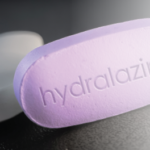MAINRITSAN 3 was published in 2020. In the study, 68 patients with granulomatosis with polyangiitis and 29 patients with microscopic polyangiitis in remission were randomized to receive rituximab every six months or placebo. At 28 months of follow-up, flare-free survival was 96% in the rituximab arm and 74% in the placebo arm, with flares more common in patients with antibodies to proteinase 3.9
Dr. Yazdany explained that trials like these will continue to be important, guiding clinicians on when to consider tapering treatment for their patients and what to expect when doing so.
COVID-19
Given the COVID-19 pandemic, Dr. Yazdany spent time highlighting research on rheumatic medications that have been in the spotlight as possible treatment for this disease.
In summarizing the substantial body of emerging literature on this topic, Dr. Yazdany noted dexamethasone is the only commonly used rheumatologic medication, thus far, that has shown a survival benefit for COVID-19 patients. She said hydroxychloroquine has failed to demonstrate efficacy for treatment of hospitalized COVID-19 patients and those in outpatient settings. Additionally, it has not proved to be an effective prophylactic treatment for the disease. Finally, it remains to be seen if Janus kinase inhibitors (Jakinibs) and anti-interleukin 6 receptor treatments improve outcomes in COVID-19 patients when these immunomodulating agents are combined with steroids.
Jason Liebowitz, MD, completed his fellowship in rheumatology at Johns Hopkins University, Baltimore, where he also earned his medical degree. He is currently in practice with Skylands Medical Group, N.J.
References
- Morand EF, Furie R, Tanaka Y, et al. Trial of anifrolumab in active systemic lupus erythematosus. N Engl J Med. 2020 Jan 16;382(3):211–221.
- Furie RA, Morand EF, Bruce IN, et al. Type I interferon inhibitor anifrolumab in active systemic lupus erythematosus (TULIP-1): A randomised, controlled, phase 3 trial. Lancet Rheumatol. 2019 Dec 1;1(4):e208–e219.
- Furie R, Khamashta M, Merrill JT, et al. Anifrolumab, an anti-interferon-α receptor monoclonal antibody, in moderate-to-severe systemic lupus erythematosus. Arthritis Rheumatol. 2017 Feb;69(2):376–386.
- Walsh M, Merkel PA, Peh CA, et al. Plasma exchange and glucocorticoids in severe ANCA-associated vasculitis. N Engl J Med. 2020 Feb 13;382(7):622–631.
- George MD, Baker JF, Winthrop K, et al. Risk for serious infection with low-dose glucocorticoids in patients with rheumatoid arthritis: A cohort study. Ann Intern Med. 2020 Dec 1;173(11):870–878.
- Landewé RB, van der Heijde D, Dougados M, et al. Maintenance of clinical remission in early axial spondyloarthritis following certolizumab pegol dose reduction. Ann Rheum Dis. 2020 Jul;79(7):920–928.
- Guillevin L, Pagnoux C, Karras A, et al. Rituximab versus azathioprine for maintenance in ANCA-associated vasculitis. N Engl J Med. 2014 Nov 6;371(19):1771–1780.
- Charles P, Terrier B, Perrodeau É, et al. Comparison of individually tailored vs. fixed-schedule rituximab regimen to maintain ANCA-associated vasculitis remission: Results of a multicentre, randomised controlled, phase III trial (MAINRITSAN2). Ann Rheum Dis. 2018 Aug;77(8):1143–1149.
- Charles P, Perrodeau É, Samson M, et al. Long-term rituximab use to maintain remission of antineutrophil cytoplasmic antibody-associated vasculitis: A randomized trial. Ann Intern Med. 2020 Aug 4;173(3):179–187.


